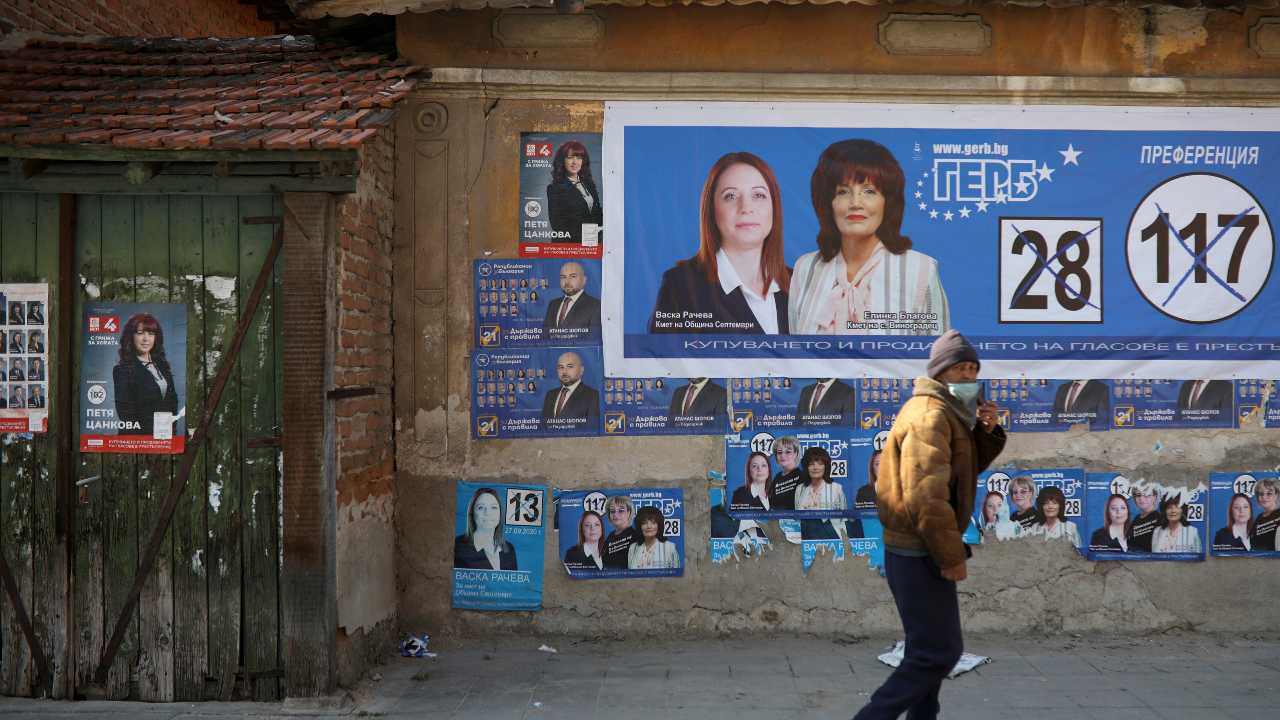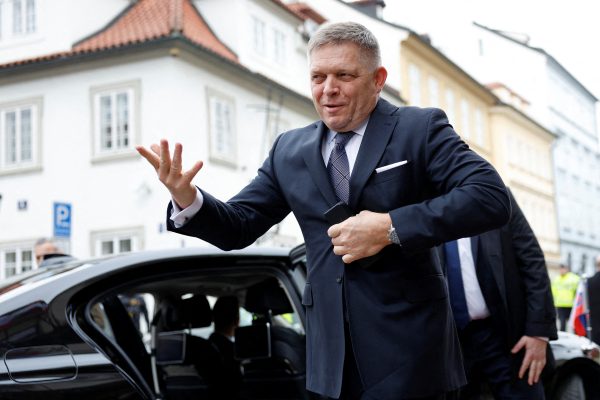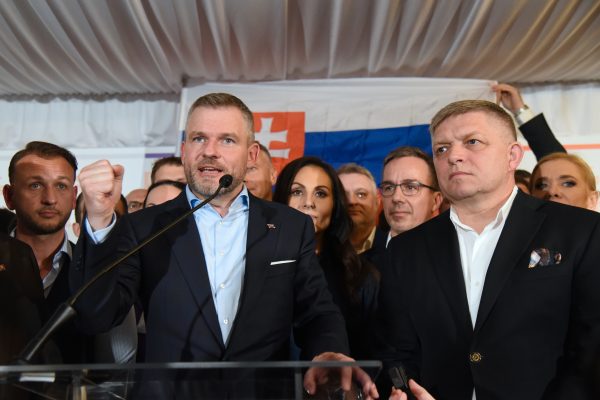Voters in Bulgaria head to the polls on April 2 for the fifth time in only two years to elect members of their National Assembly. Bulgaria’s President Rumen Radev called for a fresh vote after MPs failed to form a successor administration to the outgoing reformist government of Kiril Petkov. The country has been governed in the meantime by the presidential-nominated caretaker prime minister, Galab Donev.
At first appearance, it may seem Bulgarian democracy is entering a spiraling crisis of its own making. Despite the five attempts to produce a new government, the country remains in a state of limbo, without certainty over whether a credible program can be implemented for Bulgaria’s economic recovery following the Covid-19 pandemic. The failure of government has had a perhaps inevitable effect on public confidence — at the last elections in October, Bulgaria recorded a dismal turnout of just 39.3%.
Despite the bleak picture, Bulgaria faces the real prospect of long-term positive democratic change. Any political crisis is a risk for democracy and in Bulgaria’s case, it offers much-needed disruption. For the first time since the fall of communism in 1989, a broad electoral pro-reform coalition has emerged, united with a deep resentment towards Bulgaria’s persistent institutional and governance weaknesses.
Boyko Borisov’s center-right party, Citizens for European Development of Bulgaria (GERB), came to office in 2009, two years after Bulgaria secured its accession to the European Union (EU.) Borisov, now 63, became prime minister on the back of a pro-European platform, promising to “clean up” Bulgaria’s poor image as the most corrupt EU member state.
Born to a communist Interior Ministry official, Borisov himself joined the ministry and the party, rising to the rank of major, and later became a bodyguard to the deposed communist dictator, Todor Zhivkov. But in 2009, many focused on his reputation as tough on organized crime whilst serving as the Interior Ministry’s Chief Secretary and held out hope for his time in office
Borisov’s election disappointed these hopes. In the immediate aftermath of the political transition in 1989, the Bulgarian former communist elite adopted gradual reforms in order to maintain their hold on power, and Borisov was accused of using the same approach of pretend democratization following his election 20 years later. His party joined the center-right political grouping in the European Parliament, the European People’s Party, and portrayed itself as a safe pair of hands after Bulgaria lost EU funds due to the corruption of Borisov’s Socialist predecessors.
In return for Borisov’s stated commitment to European integration, the EU agreed to resume the transfer of funds to Sofia. Most recently, the 2021-27 EU budget allocated grants of €6.27bn ($6.72bn) for Bulgaria under the Recovery and Resilience Plan. It is to be hoped, and the EU has worked hard to ensure, that the Bulgarian state is now able to halt graft previously estimated to siphon off around 10% of all transfers.
Take the renovation of the highway ring road circling Sofia, which was expected to be completed with a financing package of €110m, provided under the EU’s Operational Programme for Regional Development 2007-13. Inspections have found that a third of the asphalt is missing and the road crumbling. Subsequent inquiries by the Ministry of Regional Development and Public Works and the Interior Ministry concluded that around €20m was lost as a result. Borisov says the real reason is that vehicles taking supplies to Ukraine had damaged the tarmac.
Meanwhile, there have also been endless scandals about the 420km (261-mile) highway connecting Sofia to the Black Sea city of Varna, which is still less than half complete 24 years after work resumed.
There have been many other sagas too involving EU funds, and the bloc now has 120 investigations underway on payments to Bulgaria. In 2019, Alexander Manolev (now sanctioned by the US for “significant corruption”) who served as Borisov’s deputy economy minister, resigned following a probe into allegations that he took €200,000 from the EU’s Rural Development Programme to finance purchases of real estate for personal use. Accusations of corruption play both ways. The country’s controversial prosecutor general, Ivan Geshev, who was appointed by Borisov, authorized raids on the president’s staff in 2020. The head of state, who has been a leading critic of GERB, was overwhelmingly re-elected the following year on an anti-corruption ticket.
It comes as no surprise that the Bulgarian people have lost their patience with what they see as a state captured and controlled by an oligarchic mafia. The huge anti-government demonstrations of 2020-21 saw Bulgarians from across the political spectrum take to the streets to protest against the longevity of high-level corruption under successive GERB-led governments. The newly-formed pro-reform, centrist party, We Continue the Change, under the leadership of Kiril Petkov, has emerged as a serious electoral force, and came first in the 2021 elections with 25.3% of the vote.
Despite managing to cobble together a coalition, Petkov’s government was always on shaky ground. The reformist leader required the support of three other parties in order to hold a majority in the National Assembly (the Bulgarian Socialist Party, There Is Such a People, and the Euro-Atlanticist Democratic Bulgaria grouping, Democratic Bulgaria.) This made the Petkov government vulnerable to collapse before it could even begin to implement its reforms, particularly in light of Bulgarian sensitivities surrounding North Macedonia’s language and minority claims. Slavi Trifonov’s There Is Such a People withdrew from the coalition, citing Petkov’s decision to lift Sofia’s veto on Skopje’s EU accession talks. There was controversy too over support for Ukraine, and it was subsequently reported that Bulgaria supplied large quantities of arms in secret.
Nonetheless, We Continue the Change’s strong electoral performance has shown that there is broad popular support for a serious reform agenda to take shape in Bulgaria. In contrast to Borisov, Petkov backed up his anti-corruption position with concrete action. His government detained the former GERB prime minister after the European Public Prosecutor’s Office launched investigations into allegations of EU funds misuse in the areas of agriculture, construction, and public procurement. The reluctance of MPs to accept Borisov’s coalition proposals following the inconclusive election results in October is also an indication that attitudes across the National Assembly are also changing on the issue of corruption.
Current projections of the April elections point towards another stalemate. According to an Alpha Research survey on March 1st, Petkov’s pro-reform coalition, PP-DB, leads GERB-SDS by 1% at 26.4% to the center-right coalition’s 25.2%. To break the deadlock, Bulgarian voters need to feel convinced that their lawmakers are truly acting in their interests.
Petkov should look to build on his achievements in government by proposing a tangible reform program, based on a realistic set of goals and expectations. For example, developing the cooperation between government and civil society on Bulgaria’s asset recovery framework, governance of state-owned enterprises, and specialized law enforcement capacities. For its part, the EU needs to acknowledge that for years it turned a blind eye to the misuse of EU funds during the Borisov era from 2009 to 2021. These are short-term, practical steps that can be made to help instill confidence in the democratic process among the electorate and restore voter turnouts.
It is vital that Bulgarian and EU policymakers maintain the momentum of the widespread support for democratic renewal — as shown in the 2020-21 protests — before it is lost. In that way, the current political crisis might open the way to profound and long-lasting change.
Hugo Blewett-Mundy is an Associate Research Fellow at the EUROPEUM Institute for European Policy in Prague
Europe’s Edge is CEPA’s online journal covering critical topics on the foreign policy docket across Europe and North America. All opinions are those of the author and do not necessarily represent the position or views of the institutions they represent or the Center for European Policy Analysis.





